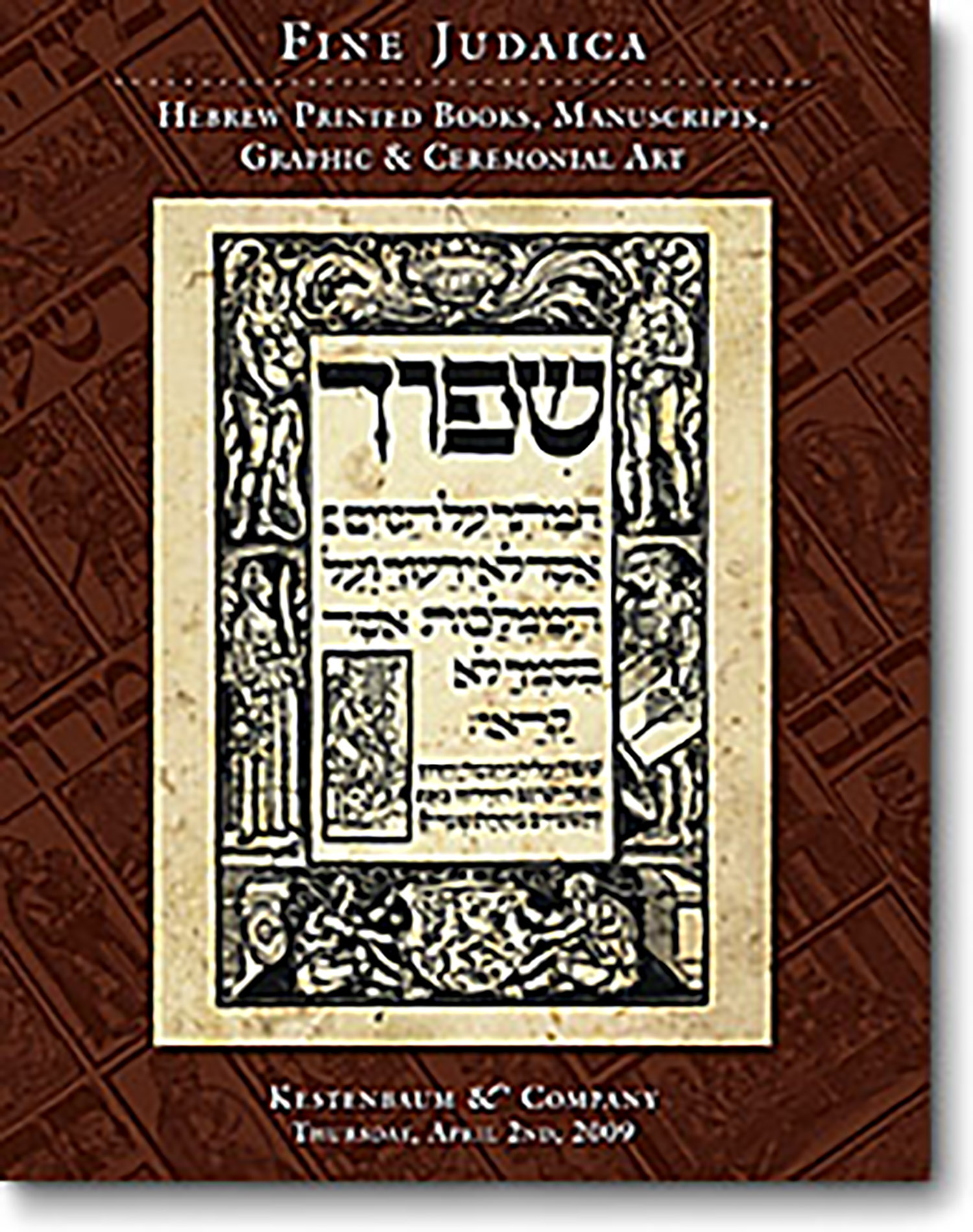Machbereth Menachem ben Saruk [Dictionary of Menachem ben Saruk] with Judeo-German translation and notes by Judah ben Jonah Jeiteles. Autograph manuscript

AUCTION 43 |
Thursday, April 02nd,
2009 at 1:00
Fine Judaica: Hebrew Printed Books, Manuscripts, Graphic & Ceremonial Art
Lot 277
JEITELES, JUDAH [LEIB] BEN JONAH
Machbereth Menachem ben Saruk [Dictionary of Menachem ben Saruk] with Judeo-German translation and notes by Judah ben Jonah Jeiteles. Autograph manuscript
Vienna: 1837
Est: $2,000 - $3,000
PRICE REALIZED $1,800
UNPUBLISHED MANUSCRIPT BY ILLUSTRIOUS PRAGUE MASKIL
Tenth-century Spanish lexicographer Menachem ibn Saruk's Machbereth was the first Biblical dictionary written in the Hebrew language (earlier dictionaries were composed in Arabic). Because it was written in Hebrew, it enjoyed a wide audience, for example, Rashi quotes from it extensively in his Biblical commentary. When later the Machbereth was attacked by Dunash ibn Labrat, Rashi's grandson Rabbenu Tam rose to its defense. (See JE, Vol. XI, cols. 1305-6).
Austrian orientalist Judah Jeiteles (1773-1838), member of the illustrious Prague family of rabbinic scholars and enlightened maskilim, published a grammar of Biblical Aramaic, Mevo Lashon Aramith (Prague, 1813), and a collection of poems, B'nei ha-Ne'urim (1821). As one of the four chairmen of the Prague Jewish community, Jeiteles supervised its German-language school. In 1830, he settled in Vienna. Jeiteles is credited with being the first to use the expression "Haskalah" for the Enlightenment movement.
That the author intended this manuscript for publication is borne out both by the final line of the title, "Ha-motzi la-or Zalman ben Gottlieb Ko[chav] T[ov]" (published by Zalman ben Gottlieb Stern), and by the Government Imprimatur at the volume's end. One can only surmise that the author's death at that time put an end to the project, indeed, the work still remains unpublished. See M.M. Stern Kochvei Yitzchak I (Vienna, 1845) and JE, Vol. VII, p. 91; EJ, Vol. IX, col. 1332
